- Details
- Category: Industry News
The University Transportation Research Center (UTRC) at The City College of New York has been analyzing how the COVID-19 pandemic has already changed every aspect of mobility. In a new webinar series produced by UTRC and sponsored by the International Association of Transportation Regulators (IATR), speakers from the leading transportation trade groups discussed the unique and unprecedented challenges posed by the pandemic, and what they expect as they navigate reopening and ensuring a safe future for all riders. Held July 9 and moderated by UTRC Transportation Technology Chair Matt Daus of Windels Marx, The Reinvention of the Taxicab & For-Hire Vehicles Industries featured panelists Ira Goldstein of the Black Car Fund (BCF), Brendan Sexton of the Independent Driver Guild (IDG), Cira Angeles of Livery Base Owners, Michael Woloz of the Metropolitan Taxi Board of Trade (MTBOB), Avik Kabessa of the Livery Round Table, and Eric Rothman of the Drivers’ Opportunity Service Association (DOSA).
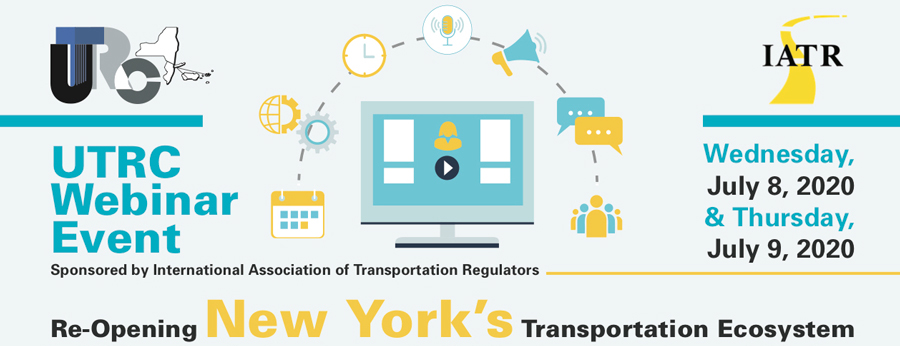
NYC was a major epicenter of the outbreak and had to pivot quickly, which forced city officials and trade group leaders to solve problems they never faced before. Transformed overnight from the city that never sleeps to the city that is sheltering in place—shuttering the region’s ubiquitous subway system at one point and rendering the normally bustling Times Square a ghost town—the trade groups estimate that ridership was down 85-90 percent across all sectors. With all of those vehicles out of service, it created new situations: where to park them so insurance could be reduced. The organizations leaped into action to help drivers and bases tap into federal assistance or unemployment, get access to medical professionals, and even offer legal advice free of charge.
Beyond those challenges, drivers were a lifeline for many essential services, including delivering food, medical supplies, and packages during the shutdown. For those who did continue to work, it became critical to protect them and their potential passengers. Handwashing is crucial to preventing the spread, but drivers don’t have easy access to bathrooms or running water over the road. Goldstein reports that in conjunction with the IDG, BCF was able to assemble and distribute more than 20,000 kits containing masks, hand sanitizer, and gloves to drivers and bases. He says that it was one of the most-appreciated programs in all his years at the Fund.
Modes of transportation had been shifting long before the pandemic as the region learned to strike the right balance between established transportation providers and the aggressive impact of TNCs. Before COVID presented its own mental wellness issues, an uptick in medallion driver suicides starting two years ago rocked the taxi community. Both BCF and IDG had established a wellness program that continued to offer drivers a chance—virtually and over the phone—to seek assistance and form a bond with others who were also struggling.
As the city awaits further guidance from Mayor Bill de Blasio, the trade groups continue to advocate for those they represent.
The webinar is available on demand, which can be accessed here.
[07.14.20]
- Details
- Category: Industry News
Even though Congress is in recess until July 20, leaders and members of industry associations are hard at work behind the scenes making sure that lawmakers don’t lose sight of the pandemic’s effect on transportation services. Right before the break, two bills were introduced that could provide some much-needed relief to operators across the spectrum.
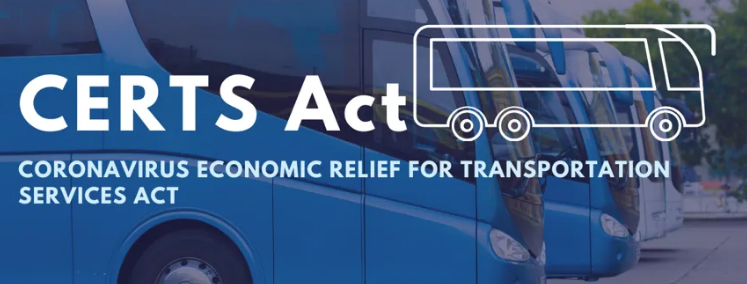
More than 100 associations and organizations, including the National Limousine Association (NLA), signed a letter in support of S. 4117, tentatively called The Paycheck Protection Program Small Business Forgiveness Act, which would automatically forgive loans of less than $150,000 upon the borrower’s completion of a simple, one-page forgiveness document. According to the letter, “loans of $150,000 and under account for 86 percent of total PPP recipients, but less than 27 percent of PPP loan dollars. Expediting the loan forgiveness process for many of these hard-hit businesses will save more than $7 billion and hours of paperwork.” The bill was sponsored by Senators Kevin Cramer (R-N.D.), Bob Menendez (D-N.J.), Thom Tillis (R-N.C.), Kyrsten Sinema (D-Ariz.), Martha McSally (R-Ariz.), and Kelley Moore Capito (R-W.V.). The full letter can be viewed here.

For motorcoach operators, the American Bus Association (ABA) and United Motorcoach Association (UMA) have been championing a bill that would provide $10 billion in loans and grants to help the bus industry bridge the recovery. The bill, Coronavirus Economic Relief for Transportation Services Act (CERTS Act), was introduced jointly by Sens. Jack Reed (D-R.I.) and Susan Collins (R-Maine) earlier this month. Both associations have spearheaded extraordinary Congressional outreach through tens of thousands of letters, emails, calls, and meetings by members and industry friends. A letter urging support of the bill was signed by leaders of more than 30 associations, including the UMA, ABA, and NLA. The full letter can be viewed here.
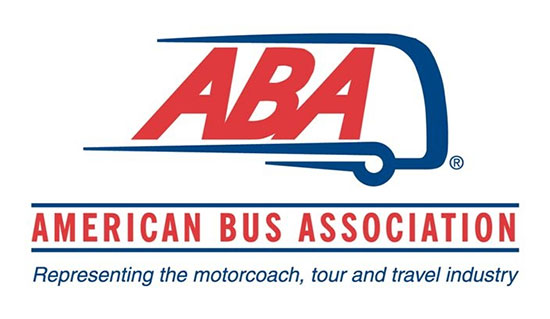
According to the letter, “These transportation industries and their employees all provide vital transportation services, playing an essential and critical role in the national transportation network. If these industries fail, it will have a devastating and reverberating effect throughout the entire economy. The impact will affect not only the capacity of the national transportation network, but also schools, national emergency response capabilities, the manufacturing sector, the financial sector, the tourism sector and beyond. All citizens deserve vital, reliable, and affordable transportation services for their daily lives, and require safe and reliable transportation services for their children to attend school and educational events.”

Although it’s been widely reported that Congress will pass another heavy-lifting and wide-sweeping COVID-19 relief bill—especially with the virus spiking again and many provisions from the CARES Act expiring or being exhausted—Republican lawmakers have expressed their desire to see a package that doesn’t exceed $1 trillion. Because aid is so critical and industry-specific relief could be overlooked, the associations continue to urge their members, industry peers and friends, family, and anyone impacted by the recovery of the transportation and travel industry to continue reaching out to their members of Congress. UMA has created a form letter specifically for the CERTS Act, which is available at busesmoveamerica.com.
Text for neither bill has yet been posted online as they were introduced immediately preceding recess. Track the progress of the bills by visiting congress.gov.
[07.14.20]
- Details
- Category: Industry News
NLA Explains Bylaw Changes, Will Release Cleaning Video
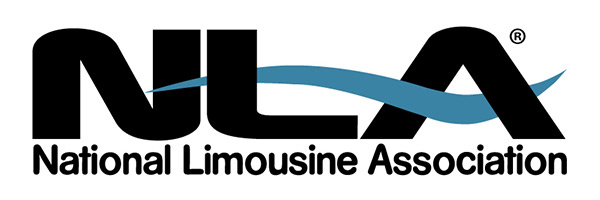 The National Limousine Association (NLA) held a Facebook Live video on July 9 detailing important changes to the association’s bylaws, which were proposed by the NLA Bylaws Committee. In his President’s Notes, NLA President Robert Alexander noted that members were expected to be able to vote for the changes online from July 16-31; information on how to vote will be sent to members this week. To view a copy of the changes, email: info@limo.org.
The National Limousine Association (NLA) held a Facebook Live video on July 9 detailing important changes to the association’s bylaws, which were proposed by the NLA Bylaws Committee. In his President’s Notes, NLA President Robert Alexander noted that members were expected to be able to vote for the changes online from July 16-31; information on how to vote will be sent to members this week. To view a copy of the changes, email: info@limo.org.
Alexander also announced that members will be able to brand a new cleaning video—in line with the hygienic protocols that the association released last month—with their company logo and use as a marketing tool and PR opportunity. The video debuted on July 14 via a Facebook Live presentation and is available exclusively to NLA members on its website.
Visit limo.org for more information.
MCTA Holds Happy Hour, Holds Membership Campaign
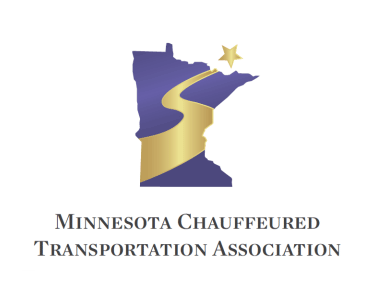 After months of frequent virtual meetings and plenty of timely emails for business assistance as much moral support, the Minnesota Chauffeured Transportation Association (MCTA) held its first in-person casual get-together on July 8. MCTA Secretary/Treasurer Chad Peterson of Renee’s Limousines served as the evening’s host as he opened the doors of his company to about 10 members and friends of the association with plenty of refreshments on hand.
After months of frequent virtual meetings and plenty of timely emails for business assistance as much moral support, the Minnesota Chauffeured Transportation Association (MCTA) held its first in-person casual get-together on July 8. MCTA Secretary/Treasurer Chad Peterson of Renee’s Limousines served as the evening’s host as he opened the doors of his company to about 10 members and friends of the association with plenty of refreshments on hand.
The association is also in the final days of its membership drive, which ends July 15. For the remaining months of 2020 and the first month of 2021, MCTA dues are just $30 per in-service vehicle, with a minimum investment per operator of $100. This is a reduction of last year’s $100 per vehicle, and this spring’s $90 per vehicle. The Board of Directors also voted to adjust partner (vendor) memberships. More details about membership levels and benefits can be found here.
Visit mnlimo.com for more information.
LITA to Hold Virtual Meeting
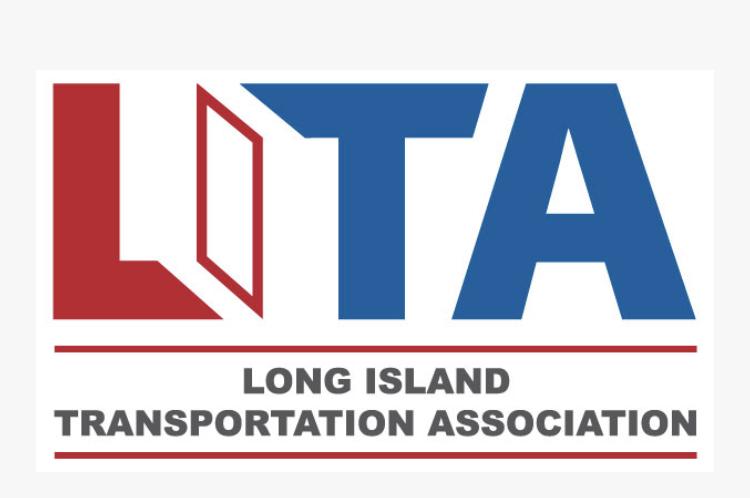 Douglas Schwartz, owner of Executive Ground Transportation and president of the Long Island Transportation Association (LITA), invited all members and friends of the association to participate in a Zoom meeting on July 16 at 4 PM ET. The topic of discussion will be “What types of trips are you booking today?” For more information on joining the meeting, email Schwartz at doug@executivelimousine.org.
Douglas Schwartz, owner of Executive Ground Transportation and president of the Long Island Transportation Association (LITA), invited all members and friends of the association to participate in a Zoom meeting on July 16 at 4 PM ET. The topic of discussion will be “What types of trips are you booking today?” For more information on joining the meeting, email Schwartz at doug@executivelimousine.org.
NELA Announces Upcoming Event
 Grab the wine! The New England Livery Association (NELA) will hold a Zoom Happy Hour called Cabernet & COVID Stories on August 5 at 5 PM ET. The event, which is free to attend, will feature a handful of “storytellers” hosted by NELA Director Brett Barenholtz of Above All Transportation/Boston Car/ETS including NLA President Robert Alexander of RMA Worldwide, Association; President/CEO - RMA Worldwide Chauffeured Transportation, Diane Forgy of Overland Chauffeured Services, George Jacobs of Windy City Limousine & Bus, Shariff McMichael of Dav El/BostonCoach, Jeff Nyikos of Leros Point to Point/Royal Coachman, Briana Kaplan & Chelsea Candeub of Park Avenue Limousine, Dawson Rutter & Tami Saccoccio of Commonwealth Worldwide, and Douglas Schwartz of Executive Ground Transportation. Click here to register.
Grab the wine! The New England Livery Association (NELA) will hold a Zoom Happy Hour called Cabernet & COVID Stories on August 5 at 5 PM ET. The event, which is free to attend, will feature a handful of “storytellers” hosted by NELA Director Brett Barenholtz of Above All Transportation/Boston Car/ETS including NLA President Robert Alexander of RMA Worldwide, Association; President/CEO - RMA Worldwide Chauffeured Transportation, Diane Forgy of Overland Chauffeured Services, George Jacobs of Windy City Limousine & Bus, Shariff McMichael of Dav El/BostonCoach, Jeff Nyikos of Leros Point to Point/Royal Coachman, Briana Kaplan & Chelsea Candeub of Park Avenue Limousine, Dawson Rutter & Tami Saccoccio of Commonwealth Worldwide, and Douglas Schwartz of Executive Ground Transportation. Click here to register.
NELA also shared that vendor member Alternative Claims Management will conduct a free webinar on July 15 called Capturing Lost Revenue During Vehicle Downtime. The 2 PM ET webinar will include speakers from Alternative Claims Management and Fleet Salvage Solutions. Click here to register.
Visit nelivery.org for more information.
GCLA Invites Matt Daus to Discuss Hot Topics
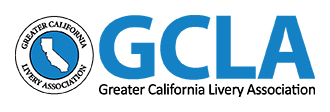 The Greater California Livery Association (GCLA) Executive Director Sara Eastwood Richardson recently hosted Matt Daus of Windels Marx for a chat about some of the most pressing topics facing not only operators in California, but potentially businesses nationwide. Top of the agenda was AB5—the bill that strengthened the test of classifying a worker as an independent contractor, which is still being bitterly fought by Uber and Lyft—as well as business interruption insurance and lingering questions about the Paycheck Protection Program (PPP). The full video can be viewed here.
The Greater California Livery Association (GCLA) Executive Director Sara Eastwood Richardson recently hosted Matt Daus of Windels Marx for a chat about some of the most pressing topics facing not only operators in California, but potentially businesses nationwide. Top of the agenda was AB5—the bill that strengthened the test of classifying a worker as an independent contractor, which is still being bitterly fought by Uber and Lyft—as well as business interruption insurance and lingering questions about the Paycheck Protection Program (PPP). The full video can be viewed here.
Visit gcla.org for more information.
[07.13.20]

